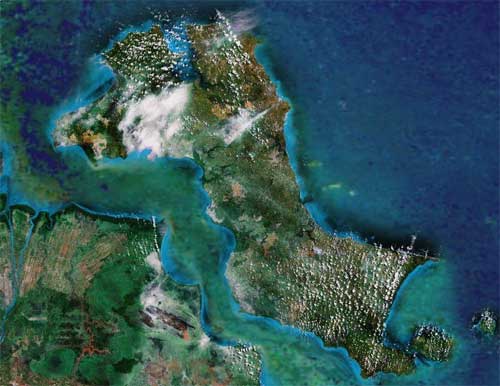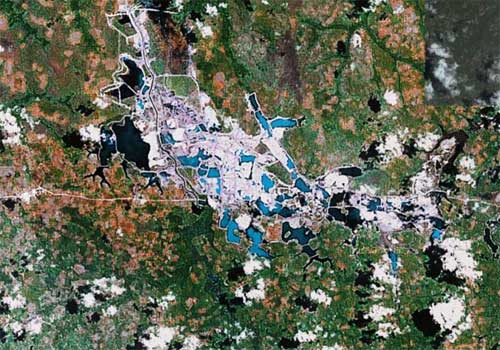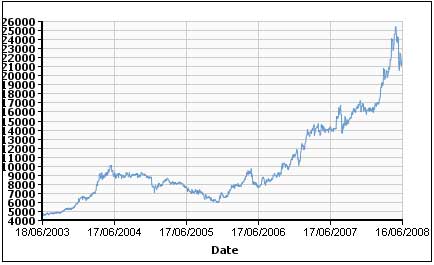
Glory is at it again with this amazing report on how tin metal is largely mined and exported against the law. Since the 18th Century tin has been mined and exported from the Indonesian island of Bangka, named after the word “wangka” meaning “tin.” Mining expanded until the 1990s when it was banned by the Indonesian government because of the environmental destruction it had created. The tropical island was completely devastated, its earth scorched by strip-mining while highly acidic blue-green pools of leachate replace rivers:

But the devastation did not stop there. The closing of the large smelters, together with the financial crisis of 1997 left islanders impoverished. Meanwhile the electronics industry began replacing lead in solder with tin-based alloys, which together with the growth of the industry in general placed great demand on the versatile metal. The price of tin has multiplied in past years, providing the incentive for a large number of Bangka islanders (descendants of Chinese laborers imported to the island to mine its tin in the 19th Century) to extract and smelt the metal individually and against the law.
The more we look into the electronics industry, we expect to find missing links. But for solder – the basic conductor for all electronic circuits – to be largely unregulated, mined by outlaw individuals at great environmental cost without regulation or traceability means that the very foundation of the digital revolution is in human and environmental destruction.
